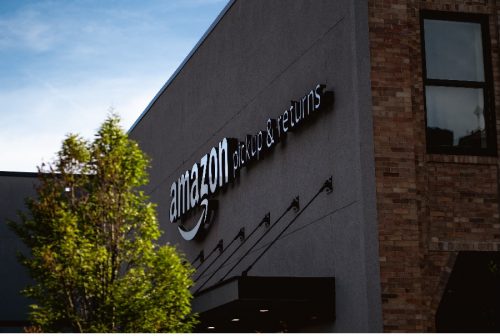Is an Amazon Seller account the right choice for British manufacturers?

By Phil Dunster, Managing Director, Numagoo
At Numagoo, one of our core specialisms is digital transformation for the manufacturing sector.
Over the past few years, we have seen Amazon become increasingly aggressive in their drive to recruit British manufacturers to their seller and vendor platforms.
With British manufacturing increasingly looking for ways to build their own ecommerce offering, we share the positives and pitfalls of becoming an Amazon Seller.
The Benefits of Being an Amazon Seller
Worldwide, 63% of product searches online start with the Amazon search bar – 83% of consumers have bought something on Amazon and the global pandemic has driven even more business through the Amazon platform, with Amazon reportedly having to increase its UK workforce by a third during 2020 to deal with increased demand.
The ready-made audience is certainly the most obvious benefit of the Amazon Seller proposition and it is one that is impossible to ignore.

Phil Dunster
The second clear benefit is that, compared with building an ecommerce website, becoming an Amazon Seller is both cheap and easy.
Initial set-up costs are small and the lead time for getting your first products online is short.
For manufacturers, there is the added appeal of being able to take their product direct to the end user while minimising the risk of alienating trade customers and distributors.
Hidden Cost Considerations
Amazon are quite transparent about their seller fees. In addition to charging a £25 (ex VAT) per month for a seller subscription, they also charge what they call a referral fee for each transaction which varies by category.
They offer a simple calculator here.
The subscription costs and fees, however, are only part of the story when it comes to the cost of an Amazon store.
According to Statista, 82% of purchasing decisions on Amazon are driven by price.
Maintaining competitive pricing can be a significant cost, leaving only minimal profit on every sale.
In addition to the hit to margins, it is almost always necessary to invest in Amazon Ads. Amazon’s organic algorithms are driven in part by product sales and customer reviews. Building a sales history usually means paying for sponsored products.
Autonomy and Intellectual Property
Investing time and money into your Amazon Seller accounts can bring big rewards.
We have worked with clients with successful Amazon Seller businesses that have brought in hundreds of thousands in revenue. With enough time and money committed and the right product range, Amazon delivers the dream.
We have also worked with clients who have experienced the business devastation of having their Seller Account banned overnight, with no recourse.
Having a revenue stream worth hundreds of thousands controlled by a third party is a huge risk and there are countless horror stories of businesses left devastated by the cancellation of their accounts.
In addition to the control that Amazon has over the revenue stream, Amazon are accused by many manufacturers of infringing on their intellectual property to create competing products, using data from Seller accounts to identify popular products, pricing and buying trends to bypass the expensive and time consuming R&D and produce their own product lines.
Risk vs Reward
The risk-reward calculation of becoming part of the Amazon Universe is different for every business.
For some, it is untenable to give Amazon and its proliferation of Chinese Sellers access to their product intelligence or to allow a third party to have ultimate control over their revenue stream.
For others, the ‘if you can’t beat them, join them’ strategy makes sense for their market, or the opportunity offered by the sheer size of the Amazon audience is impossible to ignore.
If you are looking for support with your ecommerce strategy or more information about the different ways that digital can help deliver growth for your business, visit www.numagoo.com








